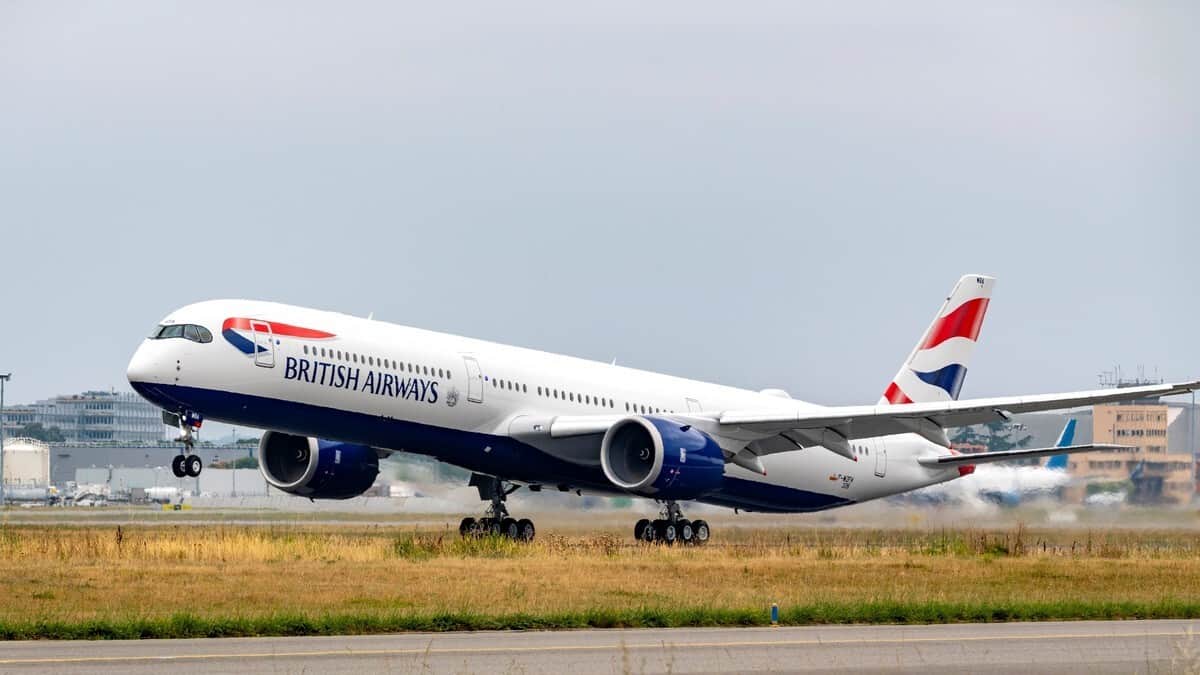The International Consolidated Airlines Group (LSE: IAG) share price has struggled in recent months. It’s perhaps understandable as Covid-19 infection rates across parts of the world remain stubbornly high. And as coronavirus variants spread the spectre of fresh restrictions being slapped on international travellers grow.
But is the market missing a trick here? Is IAG’s share price, at current levels of 159p, too good for me to miss? Gains on a 12-month basis have been pretty impressive as vaccination rollouts fuelled hopes that the problem of Covid-19 travel barriers would be eliminated. IAG’s share price is 73% more expensive than it was this time last October.
Still, this leaves IAG dealing on what could be considered a meaty valuation. City analysts think the British Airways owner will snap back into profit in 2022. But this leaves the company trading on a price-to-earnings (P/E) ratio of around 22 times at current prices. Is this multiple too high, given the rising risks to the FTSE 100 stock?
My Covid-19 concerns
I’ve previously believed that IAG could be a great UK recovery share. But those Covid-19 infection rates in certain regions, and the consequent tightening of travel rules by some countries, have suggested the recovery could take longer than expected.
This is particularly worrying, given the fragile state of the firm’s balance sheet. Net debt sat at an eye-popping €12.1bn as of June. I wouldn’t be shocked to see IAG having to tap investors for cash again in the near future.
Resurgent coronavirus rates aren’t the only reason I’ve recently changed my mind on the airline however. IAG’s share price has slumped in recent weeks after Heathrow Airport’s plan to hike the cap on passenger charges by 53% was approved by the Civil Aviation Authority (CAA). This is particularly damaging at a time when soaring inflation is hitting consumer confidence.
More threats to IAG’s share price
Changes to Air Passenger Duty in this week’s Budget haven’t helped IAG’s cause either. While cutting tax on domestic flights, the government has hiked duty on long-haul flights exceeding 5,500 miles. This could slap an extra £91 on the cost of an economy ticket, up from the £84 scheduled to come in next April.
Finally, I’m also concerned on the impact of soaring fuel prices on IAG’s recovery. Supply issues just drove the Brent benchmark to seven-year peaks around $84.40 per barrel. Analysts at Goldman Sachs have just suggested that prices could soar as high as $110 in 2022 too.
The verdict
There’s a lot I like about IAG. Its brands like British Airways command terrific customer loyalty and have a commanding role in the lucrative transatlantic sector. I also like the firm’s steps in recent years to improve its exposure to the booming low-cost European travel segment.
However, I think the multitude of problems I mention above make the FTSE 100 a risk too far. They pose a massive threat to IAG’s wafer-thin profit margins over the long term. And they are particularly dangerous in the short term, given the travel giant’s massive debts.
